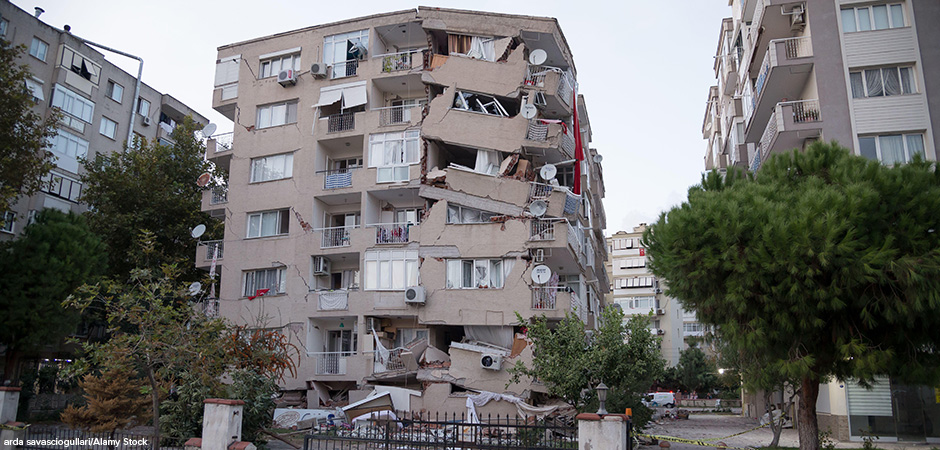
On February 6, 2023, at 4:17 a.m. local time, a powerful earthquake rocked southeastern Turkey and northern Syria. Nine hours later, another quake that was nearly as strong hit farther north in Turkey. As a result, more than 35,000 people died, thousands were injured, and countless more have been left homeless.
Questions have been raised about the safety of buildings and the response time of rescue operations. Below, btw looks closer at the cause of these earthquakes and issues surrounding this tragedy’s death toll.
What Causes Earthquakes?
Earthquakes are caused by the sudden release of energy in rocks that are found deep within the Earth. They are not preventable, and scientists cannot predict exactly when they will occur. But determining earthquakes’ locations is possible. Most earthquakes happen near fractures of rocks located within Earth’s crust. These fractures are called faults. Very large slabs of rocks deep in the Earth are called tectonic plates, and these plates meet at faults. Imagine that tectonic plates are like puzzle pieces, and the faults are the joining points of the pieces.
Tectonic plates are constantly pushing and pulling against each other. The pressure of this movement sometimes causes plates to shift. These shifts result in seismic waves moving through Earth’s rocks and can cause shaking in the ground above. If the shaking is severe enough and lasts long enough, it can result in substantial damage like in Turkey and Syria. These Southwest Asian countries are in a particularly unstable geographic area where several tectonic plates meet.
Earthquakes are measured by a scale devised by American scientist Charles Richter. The first earthquake, centered in the Turkish city of Gaziantep, measured 7.8 on the Richter scale. The second measured 7.5 and hit near Ekinozu, a Turkish city about 60 miles (97 km) north of Gaziantep. Both are categorized as major earthquakes, with only those 8.0 or greater higher on the scale.
Why Did Many Buildings Collapse?
Some have argued that the loss of life could have been much less if buildings were safer. There are international construction regulations for safety so that buildings have a better chance of surviving earthquakes and protecting people. According to reports though, more than half of all buildings in Turkey were not up to safety code on February 6. This includes some 13 million apartments. Many buildings in Turkey crumbled to the ground, including many apartments, and crushed or trapped thousands. More than one hundred people are under investigation for the failure of these buildings.
These buildings don’t always meet the safety codes because such construction is expensive. Also, these safety regulations are sometimes not even enforced. Other times, builders can pay a fine rather than meet the safety regulations. This happened in Turkey prior to the 2018 presidential and parliamentary elections when companies and individuals were given the option to pay a fine rather than bring buildings up to code.
Why Didn’t Help Arrive More Quickly?
Critics have said that victims were not helped quickly enough and that more lives could have been saved with a faster government and worldwide response. In Turkey, President Recep Tayyip Erdogan cited harsh winter weather and the destruction of an airport runway in Hatay by the earthquakes as factors that slowed the rescue operations. Hatay is a province in southeastern Turkey and was an especially hard-hit area.
In Syria, where civil war has raged since 2011, the situation is more complicated. The earthquake-damaged area is in a region largely populated by people opposed to Syrian President Bashar al-Assad’s government. These rebels, many of whom have been helped by the United States and its allies, rely on humanitarian aid from Non-Governmental Organizations (NGOs). That aid is delivered mostly through one border crossing between northern Syria and southeastern Turkey. But it was not until three days after the earthquakes that medicine, blankets, and tents for shelter finally arrived through this crossing. Syria and its Russian allies do not want to open more border crossings through Turkey. The U.S. and its allies are reluctant to send aid through al-Assad’s government. The United Nations has called the humanitarian response in Syria an international failure.
The earthquakes in Turkey and Syria were natural disasters that could not have been stopped. However, investigations will continue to ensure better building safety and more effective responses to such disasters in the future.
